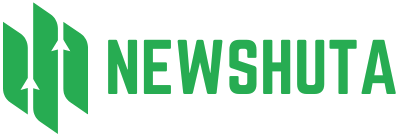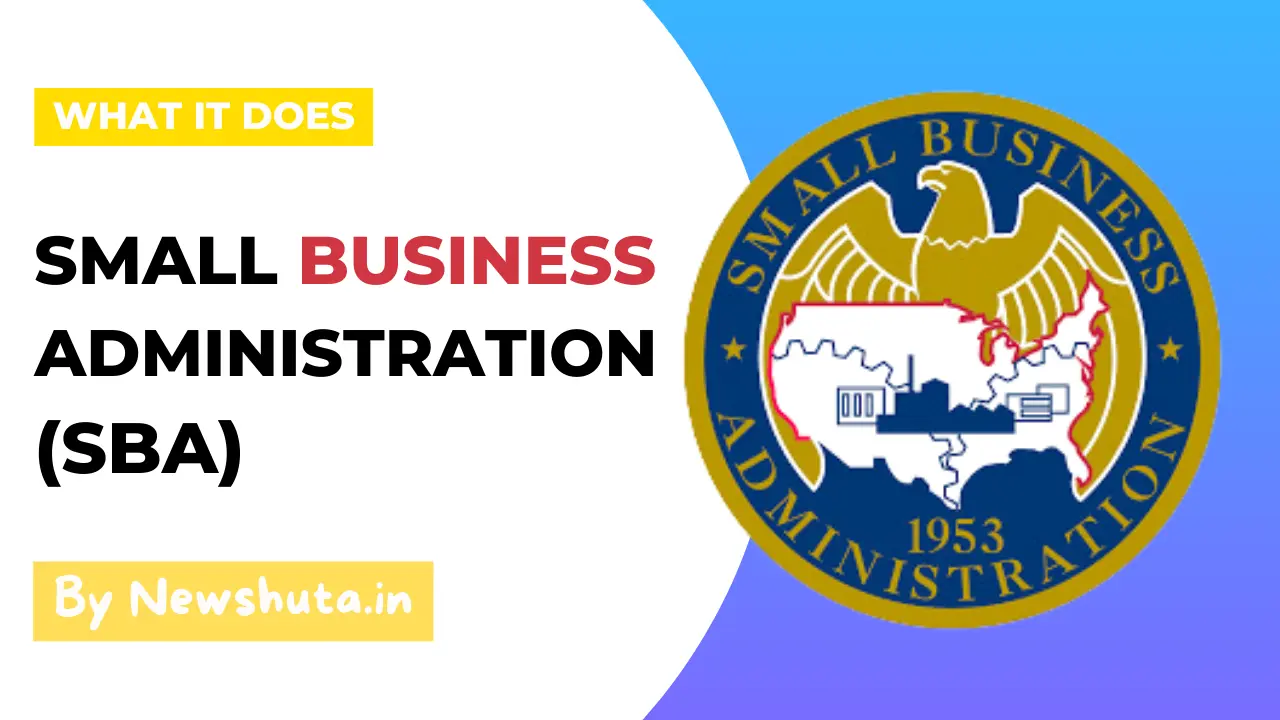The Small Business Administration (SBA) is a United States government agency that was created to assist small businesses in the provision of fund access, business advising and training as well as assisting them get federal contracts. SBA is one of those agencies formed in 1953 with its goal being to promote development of small firms and contribute towards the economy via loan programs, free mentoring services, and advocacy. The SBA offers numerous valuable resources for entrepreneurs who want to establish new enterprises or expand existing ones.
Getting into the world of small business ownership is like entering into an exciting, but maddening labyrinth. If you are involved with a small business or thinking about opening one, it’s important to know what funds are out there for you to turn to. One such crucial source is Small Business Administration commonly known as SBA. So let’s delve into the nature of SBA and how it can be your companion on the path of building a successful company.
What is the Small Business Administration (SBA)?
The Small Business Administration (SBA) is a federal agency created in 1953. It has as its main aim supporting, counselling, assisting and safeguarding the interests of small businesses. This includes business guidance and assistance, access to capital and contracting services, entrepreneurial development and advocacy services. In the final analysis, SBA seeks to ensure that small businesses become successful entities that contribute to overall U.S. economy.
Most Important Services Rendered by SBA
1. Access to Funding
Finding financing is one of the toughest challenges for many small-business owners. The SBA assists with this through several loan programs that are designed to cater for varying needs such as:
- 7(a) Loan Program: This primary program enables the agency help new firms as well as already existing ones seeking financial assistance. They can be used for purposes like working capital, expansion or purchasing new equipment.
- 504 Loan Program: This facility provides long-term fixed-rate loans for major assets such as land and buildings; it is principally useful for businesses intending to expand or modernize.
- Microloan Program: It’s a funding scheme where smaller loans up till $50K are given to develop start-up ventures and certain not-for-profit childcare centers.
- Disaster Loans: These low-interest rates loans are provided by SBA to homeowners
2. Business Counseling and Training
However, there’s a ready solution to this. The small business administration (SBA) also supports strategic planning and training via its network of resource partners including the following:
- Small Business Development Centers (SBDCs): Some of the services provided by these centers include business plan development, manufacturing assistance, financial packaging and lending assistance, exporting and importing support, and disaster recovery assistance.
- SCORE: SCORE is a volunteer business mentorship network that provides free counselling and educational resources for entrepreneurs online or in person who prefer maintaining confidentiality.
- Women’s Business Centers (WBCs): These institutions level the playing field for women entrepreneurs who still face unique barriers when it comes to doing business. They offer training programs, counseling sessions as well as access to finance.
- Veterans Business Outreach Centers (VBOCs): Established to assist military veterans who wish to become small scale enterprise owners through their multiple stages of growth-advocacy-funding cycle; these centers assist with company training courses, consultations and guidance.
3. Assistance with Contracting
Acquiring government contracts can mean everything for smaller companies. The SBA has several initiatives aimed at helping small businesses compete for federal contracts:
- 8(a) Business Development Program: This program involves small businesses that are socially and economically disadvantaged.
- HUBZone Program: This program is aimed at giving a preference for federal procurement opportunities to businesses in urban and rural communities.
- Women-Owned Small Business (WOSB) Program: This initiative ensures that women with small businesses can compete for federal contracts in industries where female representation is low.
4. Advocacy and Regulatory Support
In the federal government, SBA stands in as the voice of small businesses. It seeks policies that will promote growth of these businesses while working towards reducing regulatory burdens. The office of advocacy within the SBA often conducts its research on various issues affecting small business owners as well as providing data to policy makers.
Why the SBA Matters
The American economy relies heavily on small businesses for survival. They generate employment, foster creativity, and give back to their respective societies directly or indirectly. Small enterprises supported by the SBA have an advantage over other similar kind of firms because they are able to survive even in harsh economic conditions while still growing sustainably through access to funds, professional advice and possibilities for expansion which has made it vital to entrepreneurship.
How to Get Started with the SBA
To avail yourself of the SBA’s resources all you have to do is;
- Visit the SBA website: among other things, you can get more information about the various programs, where to go and also tools that are available on this site.
- Contact local resources: locate your closest Small Business Development Center (SBDC), score chapter or Women’s Business Center (WBC). These organizations provide one-on-one support services and help in navigating through different SBA programs.
- Apply for loans / grants: if you require any funding take a look at the various loan programs and see which one suits your needs. You can find some useful details on how to apply in SBA’s official website.
- Take advantage of training opportunities: sign up for seminars, webinars or training courses that are organized by SBA and its partners throughout the year. Continuous learning is indispensable in competing in business.
My Personal Experience in Small Business Administration (SBA)
It happened a year back when I noticed myself standing at the crossroads with my small business. After operating as a rather modest but promising tech start-up for some years, we got a major setback. We had an innovative product that was ready for launch but lacked the capital to scale our operations and bring it to market. Being new in business, I struggled with feelings of being overwhelmed and not knowing where to seek help from until I discovered Small Business Association (SBA).
I will always remember my first time in the local SBA resource partner, Small Business Development Center (SBDC). As soon as I walked in, Karen, one of the business advisors there greeted me warmly. She listened patiently to my story and what challenges I was experiencing. It is at this point that Karen made me aware of various lending programs of SBA loans, and provided her opinion on which would work best for me. Eventually she recommended 7(a) loan program which seemed ideal for our growth prospects.
Karen was there with me every step of the way through a thorough application process, providing guidance and ensuring that I had all the needed documents. Receiving approval for the loan eventually felt as if an enormous burden had been lifted off me. The money enabled us to increase our production, employ more people and begin a marketing campaign.
But it didn’t end there. SBA’s mentors and workshops proved very useful. In this regard, I attended several training sessions on things such as financial management or digital marketing. Each session gave me practical insights and strategies that my business could immediately implement.
On reflection, my rendezvous with SBA changed everything in me completely. It wasn’t just about money; it was the all-round advice and feeling of belongingness. SBA guided me through complexities that come when one is scaling a company and today our startup is doing great with an expanding client base and bright future ahead of it.
I would highly recommend the Small Business Administration (SBA) to anybody trapped or confused along their way with a small business. It is more than just an agency; it is what keeps people like me alive when I am so determined to follow my dreams through thick and thin.
Conclusion
The SBA isn’t just some mere government agency; it’s a vital partner for small businesses all over the United States. It is all about accessing capital, business counseling, contracting and advocacy that the agency helps entrepreneurs actualize their dreams. The SBA has got you covered whether you are starting or expanding your business since they offer resources and programs to support you in every stage. Do not hesitate, reach out and take full advantage of what the SBA has to offer; it will be your little help along the way.
FAQs About the Small Business Administration (SBA)
Entrepreneurs should understand what SBA stands for since it can be of great importance in one’s life as an entrepreneur. Here is a list of FAQs that people need to consider so as to comprehend what SBA does and how it can help their small businesses.
What is the role of the SBA?
Small Business Administration (SBA) performs various roles towards supporting small enterprises in America through making sure that there is access to finance, business counseling, training and government contracts among others. The overall goal of the SBA is promotion of growth and development of small enterprises which eventually would lead to strong economy. Some of its loan schemes include lending programs offered by local Certified Development Companies (CDC), partners with local institutions for business advice and training as well as lobbying on behalf of SMEs at federal level.
What is the definition of a small business according to the SBA?
A small business is defined by the SBA as being of a certain size, but this varies from industry to another. Such measurements are generally based on the number of employees or annual receipts. For instance, a manufacturing firm would be considered small if it had fewer than 500 employees, whereas a retail outlet’s annual receipts of not more than $7.5 million would make it qualify for that title. It is expected that the SBA’s standards for sizes should just be applicable to truly smaller businesses and thus causing them to benefit.
What do you mean by SBA?
SBA refers to Small Business Administration which is an American government agency made to support and promote small businesses. This administration offers loans, grants, counseling and training resources vital in aiding small enterprises start up, grow and achieve success. In addition, SBA helps these firms compete for federal contracts while providing disaster assistance programs for those affected by disasters like floods or earthquakes.
What are the three main components of the SBA?
SBA’s three main components are:
- Access to Capital: SBA’s 7(a) Loan Program, the 504 Loan Program and microloans are some of the loans that are available for small businesses. These programs offer financial support to small firms for starting up, expanding, buying equipment, as well as recovering from disasters.
- Business Counseling and Training: This is accomplished by SBA’s network of resource partners such as Small Business Development Centers (SBDCs), SCORE, Women’s Business Centers (WBCs), and Veterans Business Outreach Centers (VBOCs). These sources help entrepreneurs with planning their business, managing their finances, marketing their products among others.
- Government Contracting Assistance: Among these are the HUBZone Program, 8(a) Business Development Program and Women-Owned Small Business (WOSB) Program run by SBA. Such programs make sure that small businesses have a chance to participate in federal procurement.
How many people work at SBA?
The United States Small Business Administration is responsible for roughly 3,200 jobs around the country. These people work in number of areas including loan processing, business counseling/training as well as administrative support positions among others within this organization. The staff members operate from its national capital located at Washington D.C., together with various field offices across the nation so that all regions can access its services and products meant for their growths.


Comments are closed.